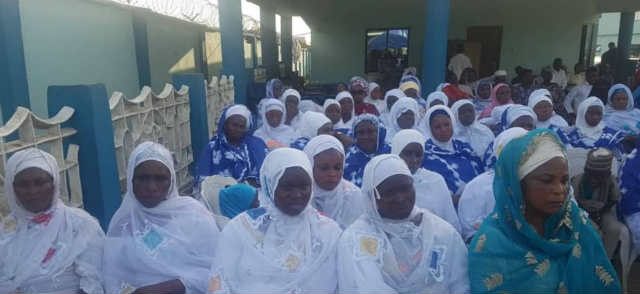This year’s festival of the ram (as the Eid-el Kabir is otherwise called) for Muslims all over the world, should hopefully serve as a refresher for Nigerians, from series of bad occurrences that they have had to contend with in the last one year. At least, they have two days to play with as public holidays, even though they may turn out to be two dull days. For one, most families have been touched by one tragedy or the other from which they are still reeling. And two, there has been a sharp drop in standard and condition of living that do not warrant the celebration that the occasion normally offers. But the period remains one of festival, albeit a period of deep reflection.

Apart from the political, economic and social gloom enveloping Nigeria, there is cause for all Muslims to recall the genesis of Eid-el-kabir as a deeply religious one in which the faithful are tasked to submit themselves totally to the will of Allah, in good times and in bad times. Muslims must also believe in the power of prayer and the ability of the Almighty God to change destinies; in particular, to render an otherwise hopeless situation into one of joy and happiness. Above all, the eternal lesson is to praise and glorify God at all times and in all occasions as the only one worthy of such praise.
One of the lessons of Eid el-Kabir is the demonstration of God’s infinite mercy on mankind, as borne out of his message to Prophet Ibrahim (may Allah’s peace rest on him) who repeatedly saw in dreams God asking him to sacrifice his son, Ishmael for God. At the time, Ishmael was the only son and both Ibrahim (he was 95 years when he had Ishmael) and his wife were old. Surely, it was a time of great tribulation for the couple; more particularly for the son, Ishmael, who was informed of his father’s intention to obey the call of Allah and use him as sacrifice.
It was to the credit of Ishmael that he never questioned his father or God for any motive. Rather he submitted himself as a sacrificial lamb. For Ibrahim, who was about to lose his hard-born child, the consolation was that it is God that giveth and it is him that taketh at will. Mercifully, having been satisfied of the family’s total submission to his will, Allah miraculously provided a ram to replace Ishmael, just at the point of his intended slaughtering. The yearly festival of Eid-el-Kabir, therefore, is to enable Muslims to demonstrate their unflinching belief in God; and to sacrifice rams as offerings for the public at large, including family, friends and neighbours.
That is why under normal circumstance, the day should not be observed in excessive festivity or extravagance, considering that but for God’s mercy, the sacrifice of Ishmael would have had devastating effects on mankind. As much as possible, the slaughtered rams, or other animals (including cows, sheep and camels) approved for the same purpose, should be distributed raw or cooked, with only a fraction reserved for families and friends. In practice, there is no way the happiness and relief of God’s mercy would not translate into happiness, but this should be controlled and observed in moderation, lest it becomes sinful.
The Eid-el-Adha, another name for the same festival, is a time for renewal of piety, distribution of wealth and means of living to the indigent whose life may be more of disillusionment than cheerfulness. It is a time to raise hope, sacrifice and share to impact on people and bring smile to the faces of the poor and the depressed. It is also a time to rekindle faith in God and seek to obey all his commandments.
Support InfoStride News' Credible Journalism: Only credible journalism can guarantee a fair, accountable and transparent society, including democracy and government. It involves a lot of efforts and money. We need your support. Click here to Donate
